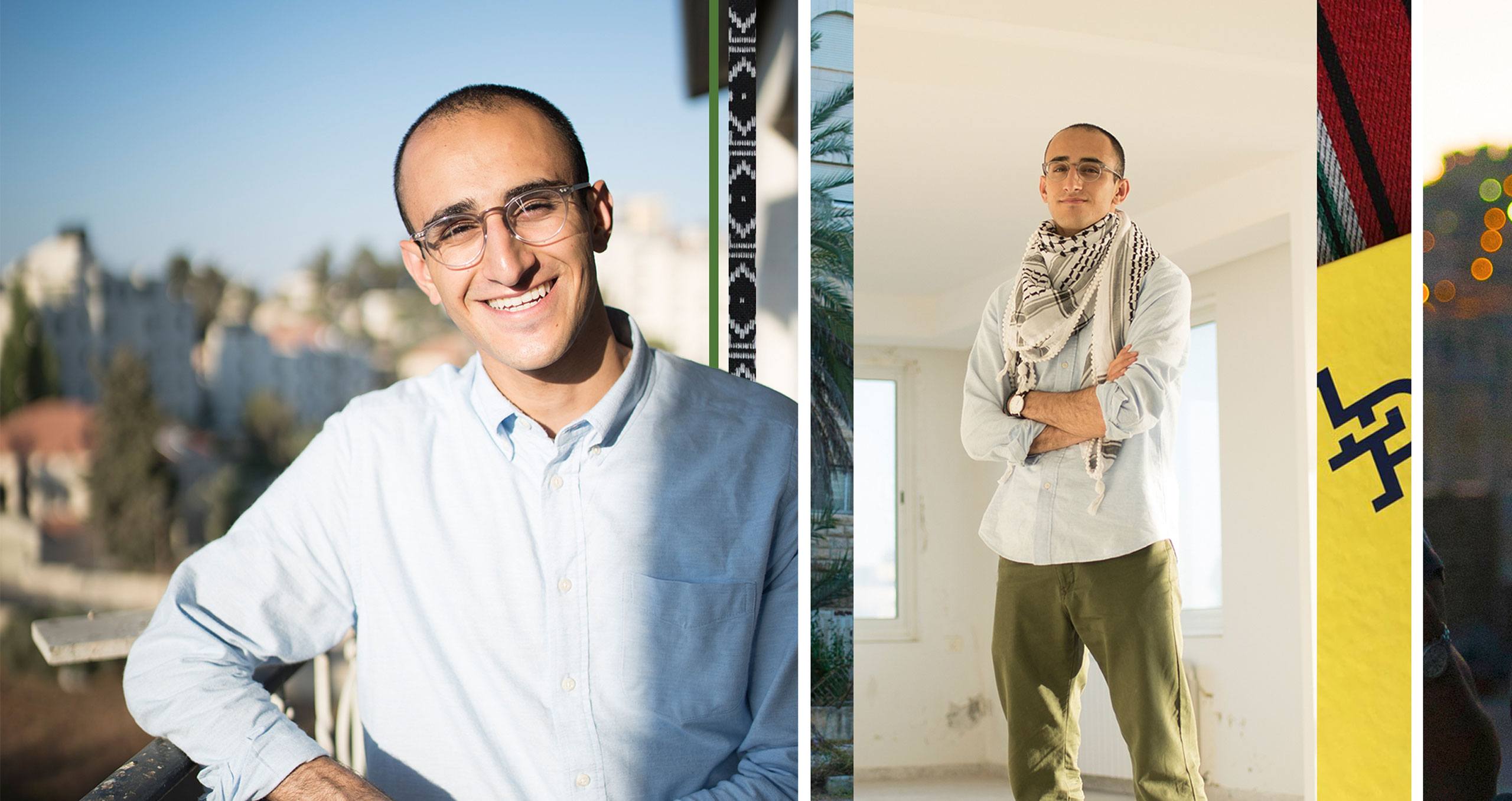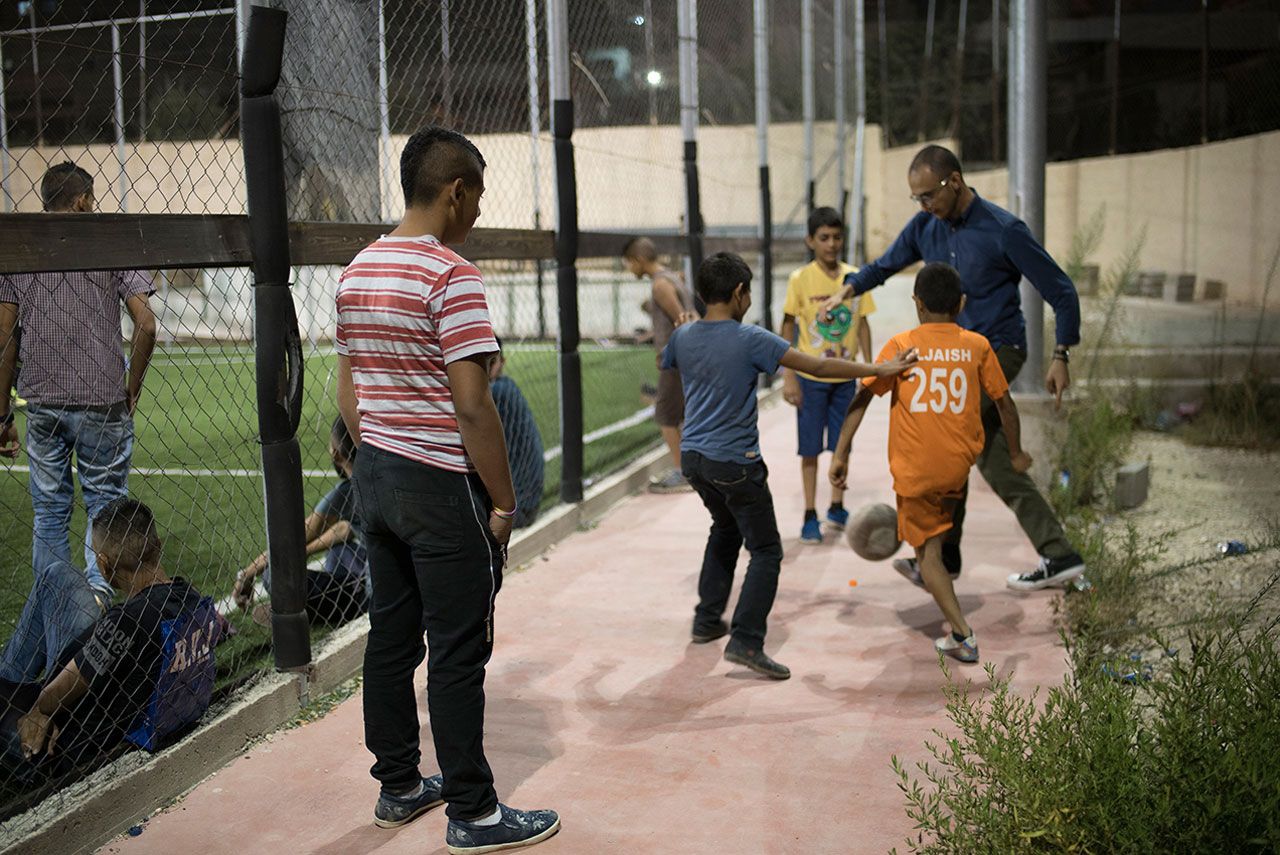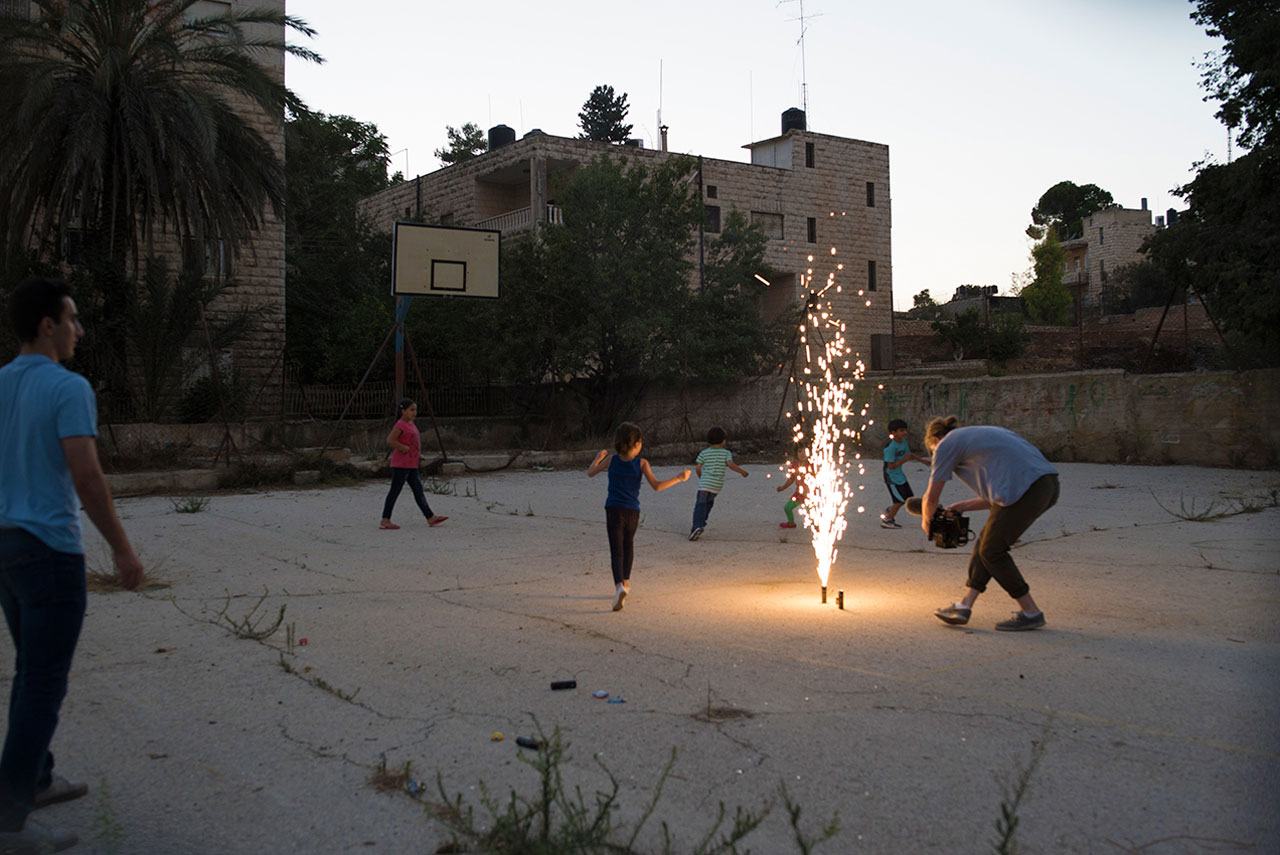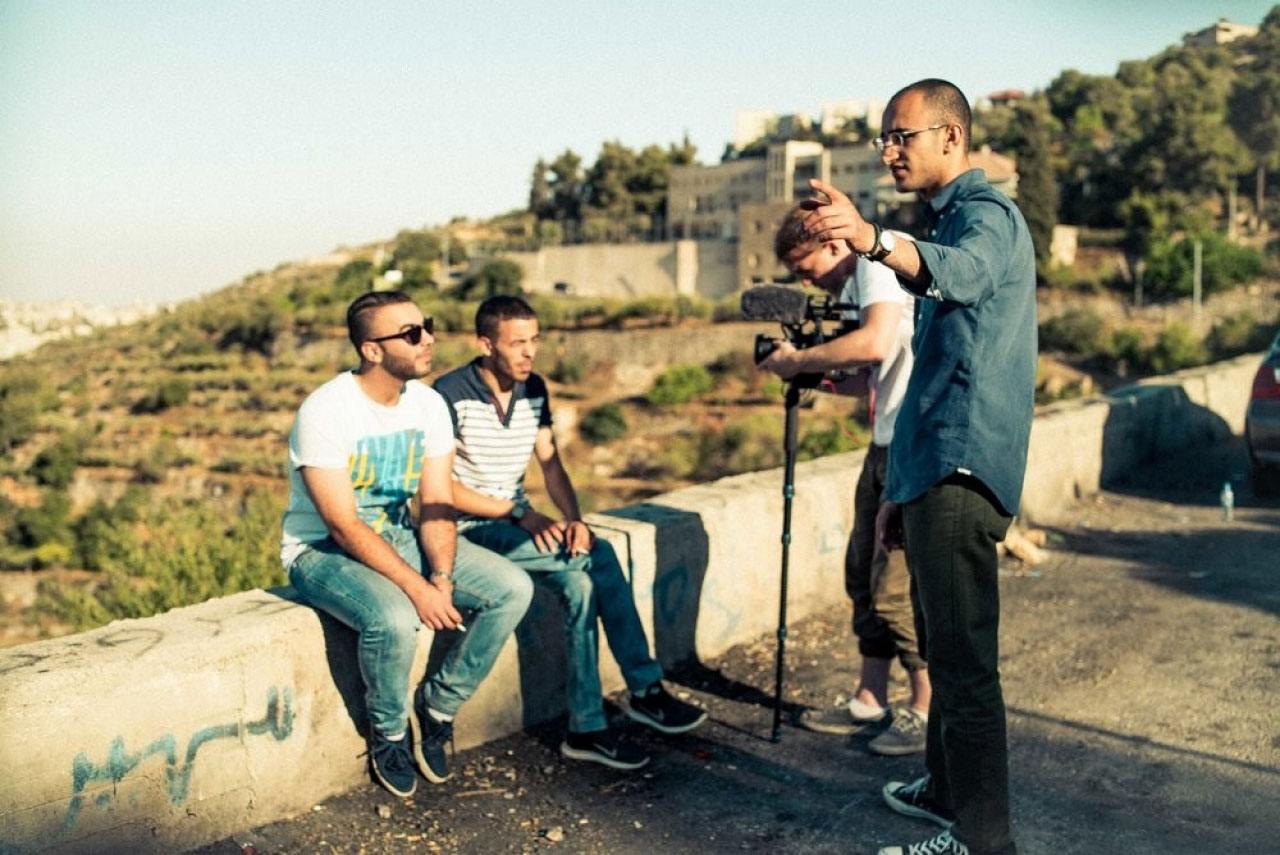
Some think that leaders are born. Others, like RJ Khalaf, think they can be made. That’s why RJ, a Global Liberal Studies (GLS) senior, created LEAD Palestine, an initiative designed to inspire, motivate, and empower the next generation of Palestinian youth. “We believe everyone has the potential to be a leader,” says RJ, “and we want to cultivate that potential. We want every child to know they are capable, talented, and cared for by positive mentors they can look up to.”
If RJ, whose grandparents are from Palestine, sounds like he knows a lot about being a leader, it’s because he’s been developing his own leadership skills since the age of 14, when he founded his school’s first Muslim student association. He rose to be his high school’s student body president at 17, and by the time he was 18 and a freshman at NYU, he was leading the TEDxNYU team at NYU London. “Spending my first year of college in London gave me a stronger sense of my own identity and value in terms of being a leader,” says RJ. “It also made me more determined to pursue the causes I’m most passionate about: advocating for Muslims, fighting Islamophobia, and cultivating the capacities and potential of vulnerable youth.”
Defending His Roots
In order to fulfill these goals once he was back in the States, RJ became involved in the university’s Muslim Students Association, which, recognizing his leadership potential, first elected him treasurer and then president the following year. All during this time, RJ worked hard to dispel misperceptions about Muslims, even taking part in a CBS News panel that explored the backlash many of his faith were feeling in light of recent terrorist attacks.
But talking about the problems Muslims experience was not the same as doing something to solve them. RJ wanted to get to the root of how Islamophobia spreads and find out what the leaders of our government are doing to stop it. He got his wish through an internship in the Washington, DC, office of Congressman André Carson of Indiana, one of only two Muslims in the House of Representatives. Carson, a vocal opponent of Islamophobia, impressed upon RJ the importance of defending the rights of Muslims wherever they live. “I greatly look up to Congressman Carson,” says RJ, “because he reaffirmed my faith in the value of speaking up for what I believe in and standing up for the social and political rights of Muslims around the world.”


Offering New Hope
Fresh off his Washington, DC, internship, and empowered by what he learned there, RJ felt he was ready to tackle the most difficult and complex problem he ever faced: the plight of thousands of Palestinian refugee youths, some of whose relatives have lived for more than a generation behind barbed wire fences. RJ visited the rundown, overcrowded Palestinian refugee camps many times before and was especially touched by the plight of the children. Schools in the refugee camps are underfunded and understaffed, and many children drop out after the eighth grade because the only high school is miles away. But what these children lacked most of all was direction for the future.
With money and mentorship from a GLS student impact grant and a Dalai Lama Fellowship, RJ created the nonprofit LEAD Palestine, an initiative through which he created a one-week, leadership-based summer program for Palestinian refugee children between the ages of 13 and 15. “We chose this age group because adolescence is a key time for these youths,” says RJ. “It’s the age when children are malleable and develop in ways that have the potential to alter their entire lives. It is a pivotal time of development in which healthy, positive and empowering interventions are vital.” With our summer program, we hope to empower these kids to think about going on to high school, and hopefully, college.”
Kids Leading Kids
Now, with one summer of experience behind him, RJ says that his original expectations for the camp were far surpassed by the reality of what occurred. “LEAD Palestine is built on a belief that empowerment is vital and has the power to bring hope to the most hopeless. I can confidently say that, after last summer, that belief proved to be 100 percent true,” says RJ. “I witnessed students who were initially despondent fill with vitality and joy by the end of the camp. This wasn’t because LEAD Palestine taught them some sort of secret, but it shined a light on their individual talents and strengths. Interactions like this were not limited to the students we worked with but carried through to the counselors and even the professional staff who work year-round at the center. People want to know they matter, that they are valued, and they want to feel that they can provide something to those around them.”
Proud of Their Accomplishments
While the camp didn’t go perfectly, RJ says he is very proud of the work the group accomplished. He points to a survey each student filled out on the first day of camp. “In that survey,” says RJ, “we asked them whom they see as a leader. Almost every single student identified some sort of military or political figure. If that’s whom you see as a leader, it can be hard to buy into the fact that you as an individual are a leader. When you don’t see yourself as a leader, you are not likely to strive toward becoming one,” he says. “However, in the final survey at the end of the camp, almost every student identified a coach, teacher, or parent as a leader in their life. This is a game changer. Suddenly, the people they see as a leader are attainable and closer to them.”
What’s Next for LEAD Palestine?
RJ says that the group’s next step is to see how they can scale their vision to other refugee camps and conflict zones throughout the Middle East. “The challenges that the students face in New Askar, the refugee camp we were in, are not unique to this camp. The solution that LEAD Palestine presents can be applied in a lot of other regions. We hope to figure out how we can best expand our impact while maintaining sustainability.”
